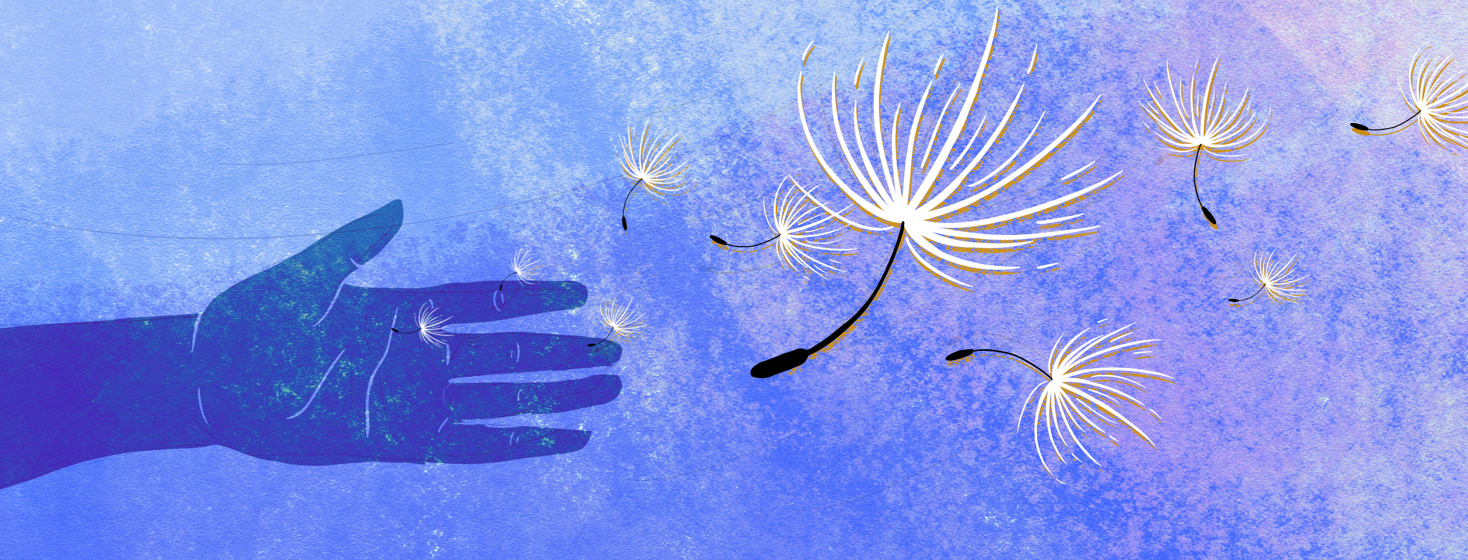No Regrets Over Blood Cancer
As a blood cancer survivor, I have often asked myself if the many things I did in my youth led to my blood cancer diagnosis today.
Did I cause my cancer?
Did I have one too many adult drinks? Was it because I had too many sweets or was it that I consumed too much red meat -- all of which may have built up toxic chemicals in my blood? Should I have eaten more vegetables or perhaps never used that great weed spray? The list goes on and on.
Working through my regrets
As time passed, I became aware of my constant refocusing on past events and facing unresolved regrets. Then one day I decided it was time to work through these feelings versus suppressing them or worse - just pushing them aside. After a lot of reading and exploring, I learned that when you suppress feelings of grief or guilt, it can impact you in ways that you often don't realize.
Following the death of my wife, I found myself dwelling and regretting what were, at the time, just silly annoyances in our relationship. The memory of those small spats over meaningless stuff and at the same time --- knowing that I could no longer resolve them with her over a cup of coffee. I needed to find ways to forgive myself.
Is forgiving oneself a weakness for men?
In my opinion, men in particular don't like to face the possibility that they have to forgive themselves for past mistakes because it can be seen as a sign of weakness. I think when we have regrets over past deeds it is best to approach it as an opportunity to learn about yourself and perhaps even grow in beneficial ways.
A rapid succession and combination of events in my life included cancer, COVID, death, and more. All of this brought me to the realization -- I need to find a way to let go of the resulting stress anxiety and depression. While it is easy to be hard on yourself, I discovered that once I started to forgive myself and break away from the mental self-punishment, a process of healing began to emerge along with noticeable changes in my behavior.
Making changes
To make the changes, I focused on things I believed needed to be done if there was any prayer of being successful. The first was to look at past situations and admit that I could have handled them better. Yes, Dennis, you should have taken the garbage out that day. Yes, Dennis you should have avoided that extra piece of cake.
None of us like to admit we are wrong because deep down we want to protect our self-esteem. It is so easy to dismiss our own behavior or put the blame on someone else. It turned out for me that just having a self-conversation was not enough. No, to be effective I needed to make things more tangible, so I decided to write a letter. It was not one I would send it to anyone. Rather I needed to see my feelings made real on paper so I could read it over again and make decisions on taking responsibility for my past actions.
Apologizing to the walls, and myself
Next was to reorient myself; so in an empty room, I apologized to 4 blank walls that I was sorry for any past actions. This imaginary conversation proved to be very powerful and really helped me begin a process of being more aware of my actions and reactions.
The final step was one of renewal. I began reconnecting with my spiritual side and began to explore self-forgiveness through prayer and meditation. By meditating and reflecting on past behavior I began to accept where I am today.
As cancer survivors, it is so easy to think of all the things you should have done or bemoan things you may never do. I believe when you free yourself from regrets and mistakes it is possible to live a fuller life and at the same time feel better about looking forward to successfully living with blood cancer.

Join the conversation